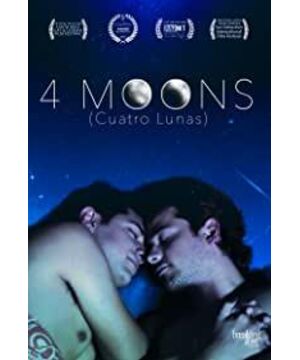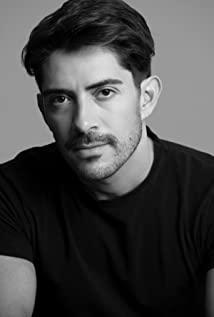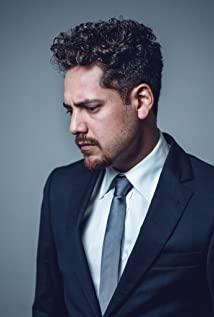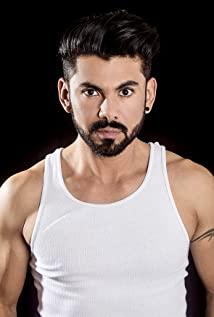This Latin American film consists of four independent stories. In my opinion, it is actually more like a story. From childhood to old age, it tells the life of one person or the whole group of gays. There is no curiosity or any accusation and criticism. It's comfortable to tell the lives of these ordinary people, and if anything, all four stories are about gay people. About the daily life of gay people, and their love.
The four stories are told independently of each other and form another large structure while being independent. From the 11-year-old boy who is infatuated with his cousin, to the young man who was once a childhood friend and can't help falling in love, to the couple who have been together for ten years facing the appearance of a third party and the last one about an old poet, chasing and admiring a male prostitute in the bathroom. In the lives of these people at different ages and facing different lives, some kind of crisis begins to arise, about love. Although these loves may not seem to be the whole of their lives, they are implicated in all aspects of life. Of these four stories, the one that broke my heart the most was the couple who had been in a relationship of ten years. In the face of one of them cheating, the other begged them to give each other a chance and make a promise to save their relationship on the verge of shattering.
In my opinion, a relationship that lasts ten years is an incredible and remarkable thing in itself. Time will eventually bring down all the turbulence, even a revolution in a country. Therefore, after ten years of repeated and trivial life, familiarity and a certain degree of boredom, the relationship must have already been on the cliff. Hugo said he had someone out there, and it wasn't just a sexual relationship, that he fell in love with that man. This kind of situation is easy to happen in the ten-year relationship at the moment, the appearance of any other will immediately derail the already tired and tired Hugo. Andres tries to mend the relationship, still deeply in love with Hugo. This is an angry story. When Hugo broke his promise and went to a third party again, when he was brokenhearted by the third party and cried and asked Andres "This is my home", We'll fight for Andres, such a bastard man, what's the use of keeping it?
But in love, those of us who stay outside see things clearly, but it is always difficult for both parties to see the problem clearly, and when they do, it is often too late. Andres replied to Hugo "I don't know how you can fall in love with a fool like me", "That's what I'm afraid of, one day I'll run out of love and don't know how to love you anymore." We It is impossible for everyone to pay the price again and again for the same mistake, even for Andres, who loves Hugo deeply. No matter how much love is not used up one day, there will be When the heart is broken by the other party, and it can no longer be sustained. So when Hugo cheated again and faced Andres in a daze, it was a time when such a long and deep love was unsustainable. To a large extent, it's not that Andres doesn't love this man anymore, it's that he doesn't know "how to continue to love him".
The complexity of love itself and the attributes of human beings almost overlap, and these complexities are often caused by our desires. Love is perhaps the only thing that can be described by words that have the exact opposite meaning, for example, it is pure and beautiful, and at the same time hurts; for example, it is happy and happy, and it is sad and painful at the same time. Love is what these words mean exactly the opposite. In the story of Hugo and Andres, the two of them are showing two very different sides of love. Andres was always reluctant to give up this relationship because of his love for Hugo, and Hugo was also destroying this ten-year relationship because of love.
In the movie "The Perks of Being a Wallflower", Charlie asked Anderson a question that touches all of us, namely, "Why do good people choose the wrong person to associate with?" Anderson replied, "We accept ourselves The love that he thinks he deserves." And in the story of the childhood friend in the film "Four Moons", what the mother told her son who was hurt by love is exactly what Charlie and Anderson discussed next. Mom tells grieving son, "I'll accept whoever you love, but make sure he loves you too. Because whoever doesn't love you isn't worthy of you." Charlie asked Mr. Anderson: "We'll let them know they're worthy Have more?" Teacher Anderson said, "We can." The same is true for Hugo and Andres. Andres was so engrossed in his love for Hugo that he neglected that he deserved more, and perhaps even thought he deserved such love as Hugo. But this is obviously not the case, because the feelings they both have for each other have been seriously imbalanced.
Even if we fight for Andres, when we try to empathize, we are not even sure whether we can make what we think is the right choice when faced with such a situation. As Sam Smith sings, they had vows and promises. Hugo broke his oath again and again and left Andres alone to repair the relationship. Obviously, this was never within the reach of Andres alone. Therefore, when Andres finally realized that the relationship he was trying to make up for had been lost, leaving was inevitable. And when Hugo came home and found that all the things he hated on the refrigerator were gone, he wept bitterly. This is something that makes people angry. At this time, we will all naturally think, why didn't he cherish it when he was still there? After I lost it, I started to regret it! I think we humans must have a nasty gene in our bodies, and we are destroying things that we understand and believe from time to time. We all know that we should cherish it when we have it, and it is too late to regret it when we lose it, but even so, there are still too many people doing these irritating things over and over again.
In the heartbreaking part of the hospital where Andres leaves Hugo, the two excellent actors perfectly perform the entangled, unbreakable, and painfully complicated emotions that still end there. Interestingly, none of the protagonists in the four stories have ever met or known each other, but only Hugo and Leo, who did not accept him because of family pressure, met. Leo met a bloody, embarrassed Hugo outside a gay club. They looked at each other, as if they could see through each other's embarrassment and predicament at that moment. The ending of Hugo after this brief encounter is the end of ten years of relationship. For Leo, who is uncertain and who is fond of men, it is a bold step to come out. Perhaps Leo saw something in the eyes of the blood-stained, painful-eyed stranger, something he might have himself someday. Even become the old man in the last story, chasing male prostitutes in the bathroom.
These four seemingly unconnected stories are actually reminding and warning each other that what the characters in one story say is actually telling the protagonist who is facing this predicament in the other story. And from the stories of others, we as outsiders see those losses and pains, which is to warn ourselves not to miss true love because of temporary fear. Life is still long for the 11-year-old boy who is just beginning his life. His father also knew this, and he also knew that as a gay, his future life would be more complicated and even more difficult than ordinary people. But at least he doesn't have to go through the youth's fear of his gay identity and the bitter self-identification process of the second story.
2015 2. 2 night
View more about 4 Moons reviews











